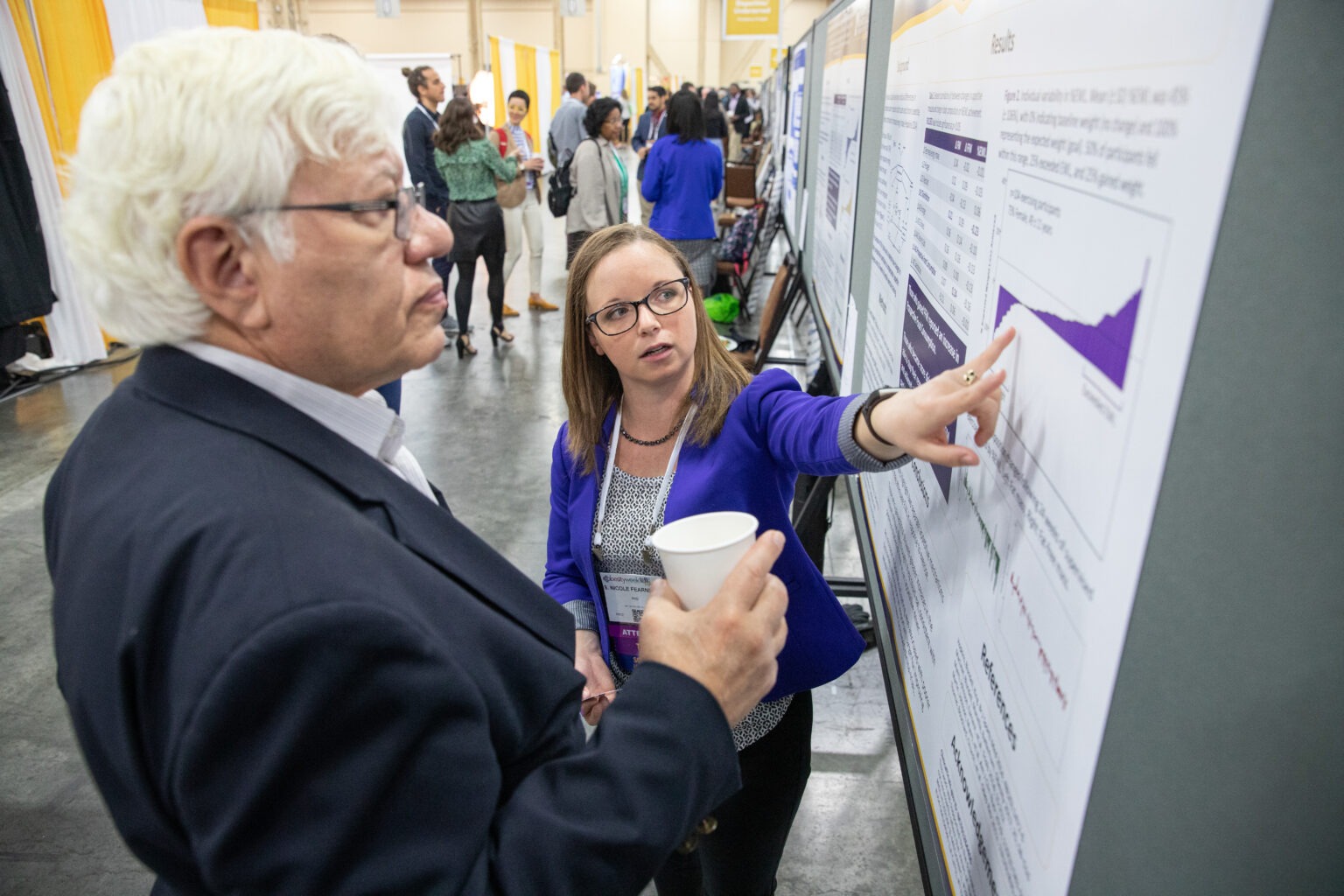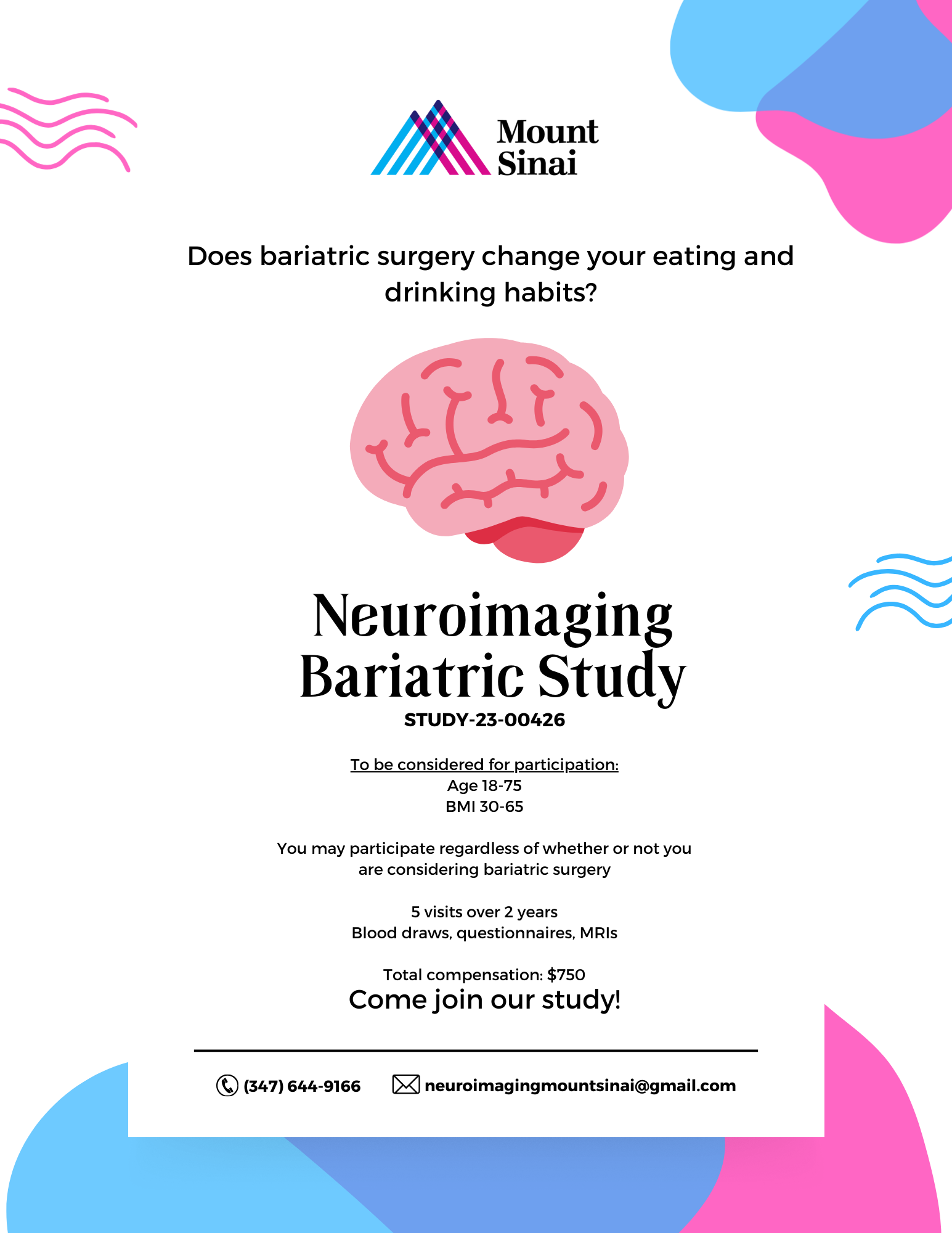Our staff’s, students’ and postdocs’ publications are available on Google Scholar and Pubmed. Funding sources include those on NIH Reporter as well as other sources. Feel free to contact Allan.Geliebter@mountsinai.org or Shaunte.Baboumian@mountsinai.org for more information or to inquire about available positions.
Allan Geliebter, PhD
Dr. Allan Geliebter is Professor of Psychiatry at Mount Sinai. He received an MA in biology and a PhD in psychology from Columbia University. He is also a licensed clinical psychologist. He serves as the co-chair of the Columbia University Seminar on Appetitive Behavior.
New instruments have been developed along the way for measuring emotional eating, the Emotional Appetite Questionnaire (EMAQ) and for assessing night eating, the Night Eating Diagnostic Questionnaire (NEDQ). A new area of interest has been environmental interventions to reduce obesity, and in a randomized controlled trial (RCT), we showed that implementing discounts of fruits and vegetables in a NY supermarket chain led to a three-fold increase in purchasing and a 50% increase in consumption, with a trend for weight loss. We are currently conducting a larger RCT (see below).
The research work has contributed to a better understanding of the stomach’s involvement in food intake, obesity, binge eating disorder, and bulimia nervosa, and to the development of a gastric balloon as an adjunct treatment modality for obesity.


Clinical Profile
My clinical work has been in treating obesity and eating disorders (binge eating disorder, the night eating syndrome, bulimia nervosa, anorexia nervosa, and pica). I have supervised eating disorder groups and provided supervision to interns and residents in psychiatry. I also have supervised programs for patients pre and post bariatric surgery and conducted bariatric evaluations. My clinical approach has been to use evidence-based treatments, primarily cognitive behavioral treatment (CBT) for eating disorders and to recommend medication when appropriate. I have conducted clinical trials to test new drug treatments for eating disorders, such as rimonabant for binge eating disorder. Two new scales have been developed for assessing emotional eating, the Emotional Appetite Questionnaire (EMAQ) and the night eating syndrome, the Night Eating Diagnostic Questionnaire (NEDQ) which have been well validated.
Current Studies
We are currently conducting an RCT funded by NIH on the effects of discounts on healthy foods at a supermarket chain in NYC. Supermarket participants are randomized to receive 0, 15%, and 30% discounts on fruits and vegetables and noncaloric beverages. Besides examining food intake, we are also assessing changes in body weight and body fat, as well as blood pressure and other medical risk factors.
We are also conducting an fMRI component as part of an NIH study on obesity (PI: Ruth Loos).

Shaunte, our lab manager, testing out the mock scanner
Lab Personnel


Clinical Profile
My clinical work has been in treating obesity and eating disorders (binge eating disorder, the night eating syndrome, bulimia nervosa, anorexia nervosa, and pica). I have supervised eating disorder groups and provided supervision to interns and residents in psychiatry. I also have supervised programs for patients pre and post bariatric surgery and conducted bariatric evaluations. My clinical approach has been to use evidence-based treatments, primarily cognitive behavioral treatment (CBT) for eating disorders and to recommend medication when appropriate. I have conducted clinical trials to test new drug treatments for eating disorders, such as rimonabant for binge eating disorder. Two new scales have been developed for assessing emotional eating, the Emotional Appetite Questionnaire (EMAQ) and the night eating syndrome, the Night Eating Diagnostic Questionnaire (NEDQ) which have been well validated.
Deleted:
Deleted:
Current Studies
Deleted:
We are currently conducting an RCT funded by NIH on the effects of discounts on healthy foods at a supermarket chain in NYC. Supermarket participants are randomized to receive 0, 15%, and 30% discounts on fruits and vegetables and noncaloric beverages. Besides examining food intake, we are also assessing changes in body weight and body fat, as well as blood pressure and other medical risk factors.
Deleted:
We are also conducting an fMRI component as part of an NIH study on obesity (PI: Ruth Loos).
Deleted:

Shaunte, our lab manager, testing out the mock scanner
Lab Personnel

